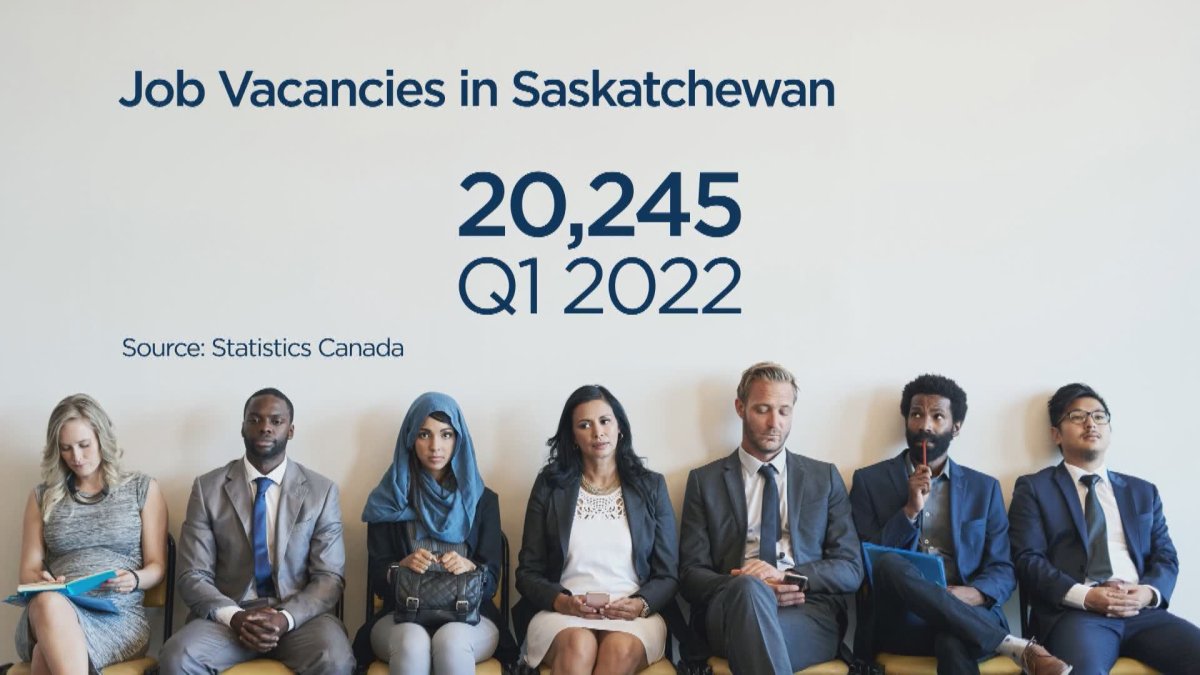Saskatchewan Immigration Minister Jeremy Harrison met with reporters Tuesday to discuss his newly-unveiled immigration proposal which would see the province take greater control over the selection of immigrants into the province.

“What we’re looking for is the same authority over immigration that Quebec has,” Harrison said at the legislative building in Regina of his proposal, dubbed the “Saskatchewan Immigration Accord” and first unveiled during national immigration ministers’ meetings in New Brunswick last week.
He said new skilled workers are needed to meet labour demands in Saskatchewan, particularly in hospitality and construction, and that the province is best suited to ensure those needs are met.
According to Statistics Canada data for the first quarter of 2022, there were over 20,000 job vacancies in Saskatchewan.
“We just feel that as a province we are in the best position to understand the needs of the province as far as immigration is concerned.”
Currently, Saskatchewan has control over the selection of new permanent residents who arrive through Canada’s Provincial Nominee Program (PNP), known in this province as the Saskatchewan Immigrant Nominee Program.
According to Immigration, Refugees and Citizenship Canada , “the PNP is a jointly administered immigration program which provides provinces and territories with an opportunity to address their specific economic development needs while distributing the benefits of economic immigration across all provinces and territories.
“Provinces and territories are responsible for the design, management and evaluation of their respective programs.”
Harrison says he doesn’t want to redevelop SINP, but instead see Saskatchewan take control over the selection of all immigrants to the province while working with the federal government to increase the number of permanent residents allowed on an annual basis overall.
In a news release about the proposal sent out last week, Harrison said he’d like to see SINP capped at as many as 13,000 applicants per year.
In Saskatchewan, 6,505 of 10,950 new permanent residents came through the Saskatchewan Immigrant Nominee Program in 2021.
1,315 arrived through the federal Skilled Worker Program, and 415 through the federal temporary resident to permanent resident pathway.
1,655 arrived through the sponsored family program and were also selected by the federal government.
“Fifteen years ago, having this discussion wouldn’t have been possible because provinces didn’t have the experience or the administrative capacity to actually administer that degree of selection,” Harrison said.
“That’s all changed over the last 15 years because provinces have been doing this: building administrative capacity, building expertise, building experience in being able to do this.”
Harrison added he thinks that transferring more selection of immigrants to Saskatchewan could free up federal government resources to allow for more efficient immigrant application processing, which includes the Canada Border Services Agency’s Immigration Security Screening Program.
The federal government is currently processing immigration documents for an estimated 2.4 million people.
“They’re taking upwards of 40 months right now to actually process immigration requests… we’re taking between two to six weeks to process on the selection sides of the equation,” Harrison said.
“Forty months is just not acceptable. And as a province being able to do all of the selection component of this we feel is going to have a beneficial ultimately for those who are most important which is the newcomer to Canada.”
Last week Saskatchewan NDP Leader Carla Beck said she agrees that immigration can be an important tool for solving labour woes, but said the government needs to ensure any increased selection control is fair and transparent.
“I think Immigration is part of the solution um and I hope that they’re not just talking amongst themselves, but actually talking to immigrant communities,” Beck said Thursday.
“I think it’s on any government to show our immigration system is fair and doesn’t contain any discrimination.”
Several of Harrison’s counterparts, including in Ontario, Manitoba and Alberta, have made similar calls for more autonomy over immigration.
The proposal also asks for $42 million in settlement funding transfers from the federal government.
In a statement emailed last week, a spokesperson for Immigration, Refugees and Citizenship Canada did not commit to accepting Harrison’s proposal.
“Provinces and territories are responsible for the design, management and evaluation of their respective programs. Provincial Nominee Program (PNP) allocations for each province and territory are determined by the Minister, in consultation with provinces and territories. Provinces and territories are informed of their allocation through bilateral ministerial letters,” spokesperson Jeffrey MacDonald wrote.
“Provinces and territories are normally informed of their allocations for the Provincial Nominee Program following the announcement of the annual immigration levels plan, which typically takes place in the fall of each calendar year.”
They added that about 13 per cent, or about 54,000, of the approximately 406,000 permanent residents admitted to Canada in 2021 came in through the Provincial Nominee Program (PNP).
“The program has consistently grown in previous years and is expected to continue to grow with admissions targets of 83,500 in 2022, to 93,000 in 2024,” MacDonald’s statement reads.





Comments